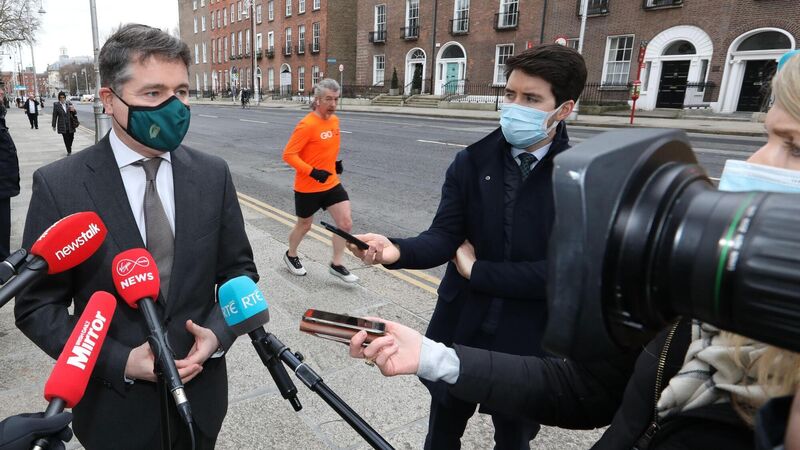Covid unemployment fallout is expected to last until 2025

Paschal Donohoe, the finance minister, reiterated that there would no sudden end to income supports which had been due to expire at the end of June. File picture: Sasko Lazarov/RollingNews
Unemployment won't fall back to pre-Covid pandemic levels until at least 2025, making it almost certain that income supports will be extended for a good deal longer, according to new official forecasts.
The projections by the Department of Finance prepared for the EU Commission suggest that the economy will be facing prolonged fallout or scarring from the Covid crisis even when the vaccine rollout is completed some time this year.
At 4.8% on the eve of the pandemic in February last year, unemployment will still average 5.5% as late as 2025, according to the forecasts.
The unemployment projections include people who currently rely on the pandemic unemployment payments (PUP) but excludes people benefiting from government wage subsidies.
Unemployment reached a modern record of 28% during the first lockdown a year ago and has hovered around 24% this year.
Unemployment will average 8.2% in 2022 and remain at a stubbornly high level of 6.7% and 6% in 2023 and 2024, according to the Government's Draft Stability Programme Update.
However, employment levels will return to pre-pandemic levels much more quickly.
The Department of Finance predicts total employment of over 2m this year will increase to 2.27m in 2022 and rise to 2.35m in 2023.
The report — like those from the Central Bank, the Economic and Social Research Institute, and other forecasters — identifies the parts of the economy worst hit by the pandemic as including accommodation and food service, and the wholesale and retail trade.
Finance minister Paschal Donohoe and expenditure minister Michael McGrath repeated there would no sudden ending to income supports which are due to expire at the end of June.
Around €12bn has been spent since the onset of the pandemic on the PUP and employment wage subsidy scheme (EWSS).
The forecasts are based on a "very gradual" easing of restrictions and on the economic recovery gaining speed later in the year and assume there be very few health restrictions next year.
The forecasts assume that only part of the €11.5bn saved by households during the pandemic will help fuel a consumer-led recovery this year and in 2022.
The economy will grow, as measured by modified domestic demand, by 2.6% this year, by 7.4% in 2022, and by 3.8% in 2023, according to the forecasts. Under the same measure, the economy contracted by 5.4% last year.
Following the budget deficit of €18.4bn in 2020, the Government will post a budget deficit of €18bn this year, and a deficit of €11.6bn in 2022.
Mr McGrath said there was evidence that the Irish economic recovery will close the budget deficit over time.
On future tax revenues, Mr Donohoe said the Government was now assuming that by 2025 it would lose €2bn a year from corporation tax receipts if the shake-up in global tax reforms proposed by US president Joe Biden were legislated for this year.










